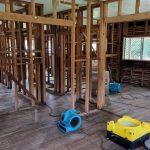When considering drywall installation, it’s essential to explore a variety of techniques and strategies that can impact the outcome of your project. Whether you are upgrading a room or replacing outdated drywall, having comprehensive knowledge about the process is crucial for success. Before you decide to hire a handyman, it’s important to grasp several key factors that influence the project’s success. This includes verifying the handyman’s licensing status, understanding the cost of drywall installation, and selecting a qualified professional who aligns with your specific requirements and expectations.
Unlock the Path: Essential Steps to Obtain a Handyman's License for Expert Drywall Installation
If you are aspiring to carve out a niche in the drywall installation industry, acquiring a handyman's license should be among your top priorities. Although not mandatory in every state, many states impose this credential as a requirement to ensure adherence to local regulations. To determine if you need a license, begin by conducting thorough research into the specific licensing requirements relevant to your state. Understanding these regulations will provide clarity and guidance as you navigate your career path.
For smaller tasks such as painting or conducting minor appliance repairs, most states do not mandate a handyman's license. However, if you are planning to undertake larger projects that involve drywall installation, you may need to secure a separate license for each job, depending on local laws and regulations. This distinction is vital for anyone looking to expand their service offerings.
In addition to obtaining a handyman's license, securing insurance is a critical step in safeguarding your business. A contractor's liability and property damage insurance policy is essential to protect you against potential injuries or damages that might occur during a project. If you plan to hire employees, workers' compensation insurance becomes necessary to cover any workplace incidents. Taking the time to review construction plans thoroughly will also aid in estimating both material and labor costs, enabling you to submit competitive bids without compromising on quality.
When applying for a handyman's license specifically tailored to drywall installation, certain standards must be adhered to. For example, in Georgia, applicants are required to pass trade, business, and law examinations. Additionally, having a minimum of two years of hands-on experience as a handyman, along with proof of general liability and workers' compensation insurance, is crucial. If your projects exceed $1,000 or necessitate construction permits in various jurisdictions—such as Hawaii—a general contractor's license may also be required. This ensures that you meet all legal obligations while providing high-quality service.
While a handyman's license for drywall installation isn’t universally mandated, it is highly recommended for those looking to perform extensive work beyond simple repairs and installations. Each state has its own unique requirements, but generally, they involve holding liability insurance and a handyman's license to protect against potential legal issues and property damage claims. Therefore, investing time in understanding these requirements can greatly enhance your professional credibility.
To thrive as a handyman, it’s crucial to familiarize yourself with the diverse standards and licensing requirements that vary from state to state. There are often significant differences regarding handyman licenses at the local level, making thorough research essential if you wish to handle a variety of projects effectively and efficiently.
Understanding Drywall Installation Costs: A Comprehensive Breakdown for Smart Budgeting
The cost of drywall installation is influenced by a multitude of factors, including the scope of the project and the types of materials required. For example, larger holes in drywall typically necessitate a complete drywall replacement, which can have a significant impact on the overall expenses incurred. Furthermore, the quantity of materials needed will directly affect both material and labor costs, underscoring the importance of accurately assessing the project's size and complexity. A skilled handyman can often tackle smaller tasks in just a few hours, allowing for a quicker turnaround.
Conversely, major drywall repairs resulting from extensive holes or water damage typically require more time and effort to address. In severe instances, entire sections of drywall may need to be removed and replaced entirely. This scenario often calls for a professional with specialized skills, potentially increasing the overall costs involved due to the complexity of the work and the expertise required.
Proper planning and preparation are paramount when embarking on drywall installation projects. A comprehensive list of necessary supplies and tools is essential, and the total cost is determined by both the area’s size and the job's overall complexity. Handymen often require the assistance of additional workers, especially for larger projects that demand more manpower. Additionally, the installation cost may vary based on whether preparatory work and cleanup are included. Complex ceiling designs or numerous corners can also contribute to increased material and labor expenses, impacting your budget.
The choice of drywall type will significantly influence the overall installation costs. Standard drywall is commonly utilized in most commercial constructions and is available in various widths and thicknesses, each impacting the price point. Understanding these options can help you make informed decisions that align with your project needs.
For larger tasks, costs can accumulate rapidly. The overall expenses largely depend on the project's size and complexity. Smaller jobs might present a higher cost per square foot; however, drywall remains a cost-effective option when compared to other construction materials, making it a popular choice among homeowners.
Although hiring a handyman may seem like a budget-friendly solution, enlisting the services of a drywall specialist can offer significant advantages. Specialists possess the in-depth expertise necessary for tasks ranging from removing popcorn ceilings to constructing drop ceilings. Their proficiency in taping joints and applying textures can ensure a superior quality of workmanship. Moreover, they are equipped to handle issues such as water damage, hole repairs, and more intricate texturing techniques that require a higher level of skill.
When selecting a drywall contractor, it’s imperative to obtain a detailed contract that clearly outlines the project scope and associated costs. The contract should specify the number of drywall sheets needed, the type of material to be used, and a comprehensive breakdown of labor and materials involved. This transparency will help you avoid unexpected charges and ensure a smoother workflow.
Expert Tips for Choosing the Right Handyman for Your Drywall Installation Needs
Before hiring a handyman for drywall installation, it's essential to ask several critical questions to ensure you make an informed and confident decision. Begin by inquiring about the estimated timeline for the project. Even the most experienced drywall installers may have varying schedules, so understanding the expected timeframe will help prevent any dissatisfaction upon project completion.
It is advisable to interview at least three potential handymen before making your final choice. During these interviews, inquire about their previous experience and request references from former clients. Ensuring that the handyman you select possesses the necessary skills and tools for the job is crucial to achieving the best possible outcome. Additionally, confirming that their services align with your budget will help you avoid any financial strain.
Next, assess the potential costs associated with drywall installation. By comparing bids from various contractors, you can gain valuable insights into the prevailing rates for your specific project. A reputable contractor should provide a thorough cost breakdown that includes all materials, supplies, and any additional expenses that may arise during the process.
Verifying credentials and insurance is another essential step before finalizing your decision to hire a handyman. Obtaining a written contract and references can offer peace of mind and help you ensure that the handyman is the right fit for your project. Additionally, requesting examples of their previous work will further bolster your confidence in your decision-making process.
A capable handyman should possess a diverse skill set that enables them to manage a variety of tasks effectively. For instance, if your ceiling has a hole requiring drywall installation, a proficient handyman should be equipped to address that challenge. They should also be capable of assisting with related tasks, such as installing new light fixtures or repairing popcorn texturing, adding value to your service experience.
Check the handyman's experience and references thoroughly before making a commitment. An experienced handyman is more likely to execute the job competently, increasing the chances of a successful project outcome. It’s wise to steer clear of contractors who employ high-pressure sales tactics or have inflated advertising budgets that may not reflect their true capabilities.
Keep your budget in the forefront of your mind when hiring a handyman for drywall installation. An efficient handyman should be able to complete the job promptly while treating your property with respect. They should also prioritize cleanliness, ensuring that the workspace remains tidy after the project is completed, which is a reflection of their professionalism.
A handyman who is knowledgeable about the intricacies of plumbing and electrical systems is an excellent choice for addressing repairs or tackling related tasks. They can also assist with a variety of projects, including hole repairs, light painting, deck repairs, and, of course, drywall installations, showcasing their versatility.
Locating a trustworthy handyman in your area is entirely feasible. Explore online reviews and seek recommendations from friends and family members. Additionally, don’t hesitate to ask your handyman for client references to verify their reputation and capabilities, ensuring you make the best choice for your drywall needs.
The post How Does a Handyman Do Drywall Installation? appeared first on https://gqcentral.co.uk
The Article Drywall Installation Techniques by a Handyman Was Found On https://limitsofstrategy.com




It’s interesting how much a handyman’s licensing can affect not only the quality of drywall installation but also homeowner peace of mind. I’ve had experiences where I opted for less experienced help because of lower costs, and it often led to more headaches down the line with repairs and redoing work. It’s fascinating that regulations vary so widely by state, which makes it essential to do our homework beforehand. Maybe it’s also worth discussing how DIY vs. hiring a professional might stack up, especially with the rise of online tutorials and resources. Have others found a balance between these options in their own renovation projects? I’d love to hear more about what has worked for you all!
You’ve hit on some really important points! The contrast between hiring licensed professionals and taking a chance with less experienced help can be a tough call for homeowners. It’s so tempting to go for the budget-friendly option, especially when you’re trying to stick to a renovation budget. Many of us have been there, believing we can save a little cash here and there. Yet, it’s often the case that those initial savings can come back to haunt us with costly repairs down the line.
You’re spot on! I think many of us have danced that dance of going for the cheaper option, only to find ourselves in a waltz with regrets later on. It’s like trying to save a few bucks on a pizza and ending up with a soggy mess instead of that cheesy delight you dreamed of.
You raise an interesting point about the allure of saving a few bucks. That experience of opting for a cheaper choice can really turn into a lesson learned. It’s easy to underestimate how those small savings can impact overall satisfaction, especially with things that matter—like food or services. Sometimes, investing a little more can lead to a much better end experience, one that’s not just about immediate gratification but also about lasting enjoyment and quality.
Absolutely! It’s all about finding that perfect balance. If you’re looking for something that’s both satisfying and worth every penny, check out this great option I found!
https://cnisclub.org/octopus
You bring up some great points about how a handyman’s licensing really plays into both the quality of the work and how at ease a homeowner feels. It’s definitely tempting to go for the cheaper option, especially when budgets can be tight, but as you’ve experienced, that choice can sometimes come back to bite you. The peace of mind that comes with knowing a professional is handling things properly is worth a lot in the long run.
You’ve touched on an important aspect that often gets overlooked in the rush to save a few bucks. Quality work isn’t just about a handyman’s skill; it’s also about the assurance that comes with proper licensing. Cheap options may seem appealing upfront, but they often lead to stress and more expenses down the line, as you mentioned.